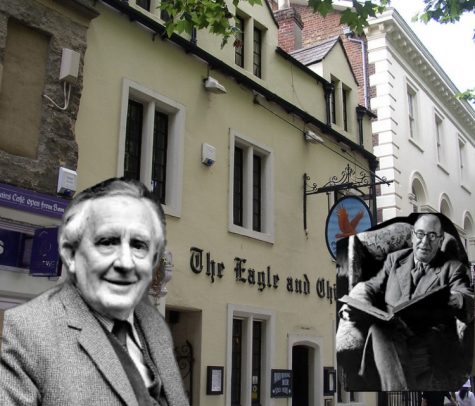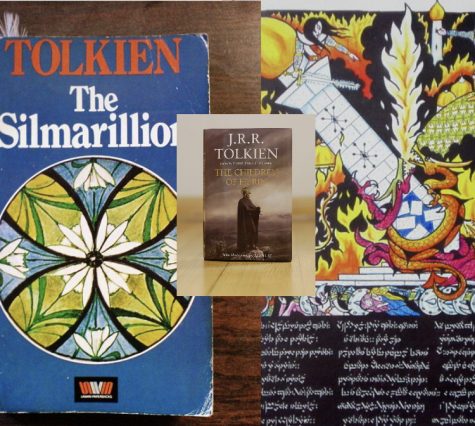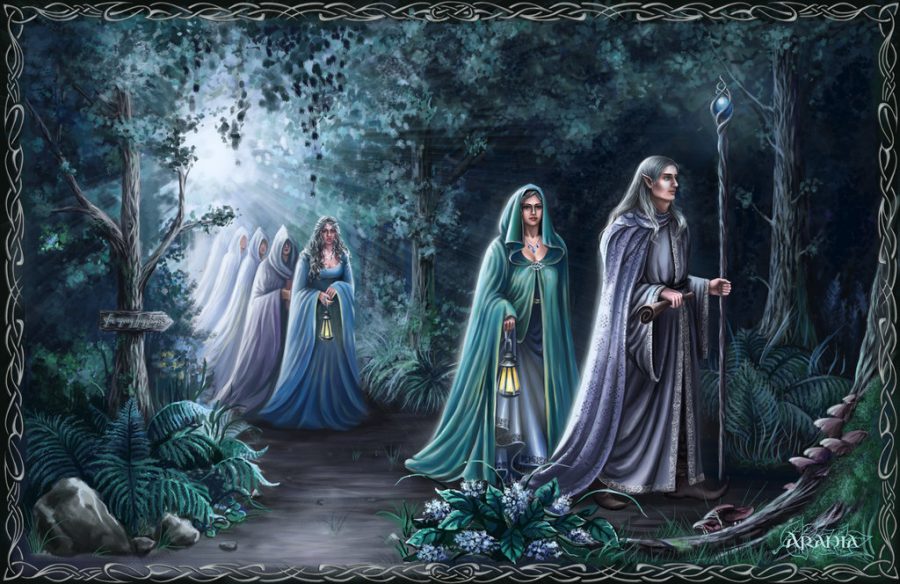Author Spotlight: Christopher Tolkien
January 27, 2020
Earlier this year at the beginning of this new year, on the 16th of January, Christopher Tolkien passed away at the age of 95 in Southern France, married to his wife Faith Faulconbridge, as the last descendant of J.R.R Tolkien thus far with such a dedication to the welfare of his work.
In his life, Christopher Tolkien was a natural fan of his father’s work, helping him make edits and revisions for his first wide-selling book The Hobbit when he was being read the work-in-progress around the age of 5. As his dad would read the stories to him, young Christopher Tolkien pointed out errors in continuity and flaws in the writing, so the end product of the book would be a sort of collaboration between the two of them.

Later in his life around the age of 14, Christopher Tolkien had to take leave from Oratory school in Berkshire for three years after coming down with an irregular heartbeat. It was during this time away from his education that his father Johnathan Tolkien began to write The Lord of the Rings, when his son was available to both provide his own feedback and be entertained by his Dad’s comforting creative power.
Later at the age of 17, between the years 1944 and 45, he went to South Africa for practice in the Royal Air Force, during which time he kept a correspondence with his father about passages and revisions from and for his new epic high-fantasy.
After a short career then awhile afterwards of lecturing English and Old Norse in Oxford, Christopher Tolkien made the official decision to resign from education and further his father’s work. His most notable post-humous publication from J.R.R Tolkien, organized and revised into a coherent narrative by primarily himself, was The Silmarillion in 1977, which proceeded to sell by the millions.
I asked a senior student and Tolkien fan Ali at ERHS what he thought of Christopher Tolkien’s passing. “I think he did just as much as his father in expanding the world of Middle Earth.” The works published by him did indeed go far and wide to encompass the fictional world’s tales, including The Children of Hurin in 2007, Beren and Luthien in 2017, and The Fall of Gondolin in 2018, the final volume of his and his father’s work.

Ali also said “His death also means the death of that universe as he was one of the few who could access and finish Tolkien’s old ideas.” While the Tolkien Estate lives on to expand and interpret the world further, Christopher Tolkien understood the stories of his father as being above all else works of literary art, starting and ending as books before films or shows.
I asked another student, a Junior named Roy, whether or not he was familiar with the family’s work. “I don’t really like to read that much, but I’ve seen the movies.” The works by Peter Jackson are indeed far more popular in today’s culture than the original books. When asked about their legacy he said, “It’s cool that he got to put out all those other books from him.”


